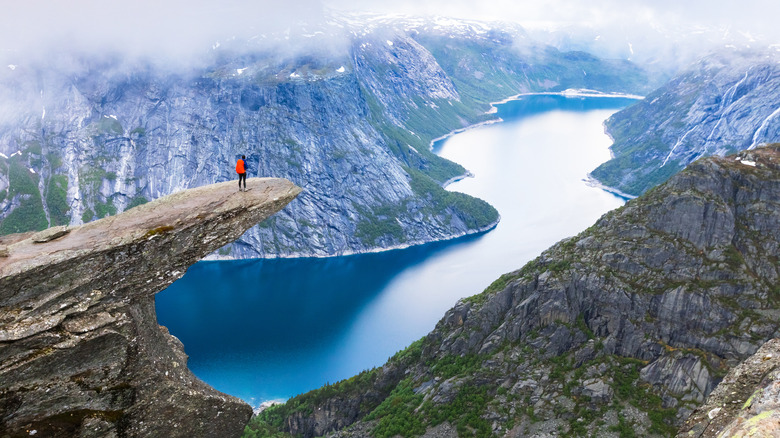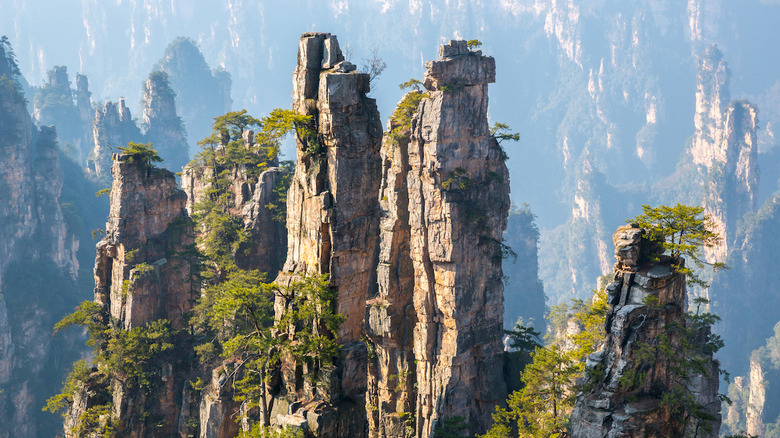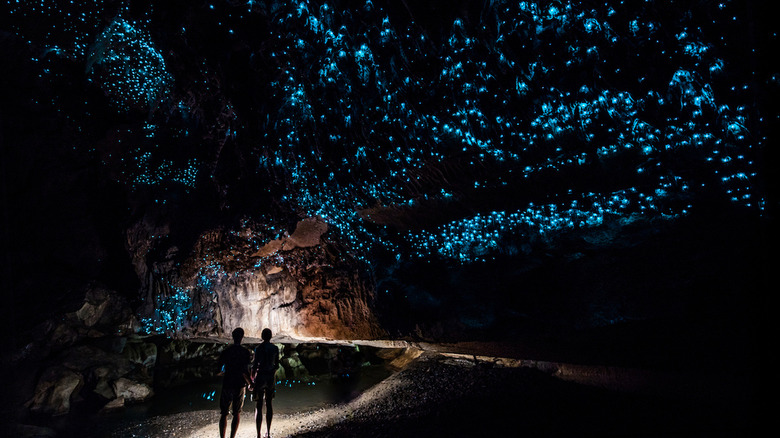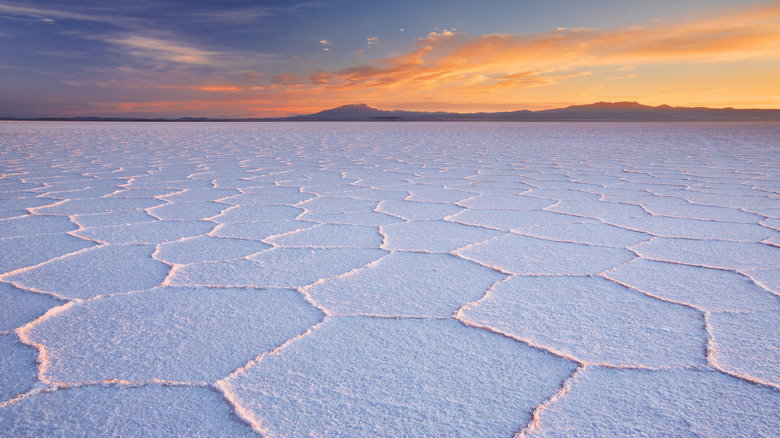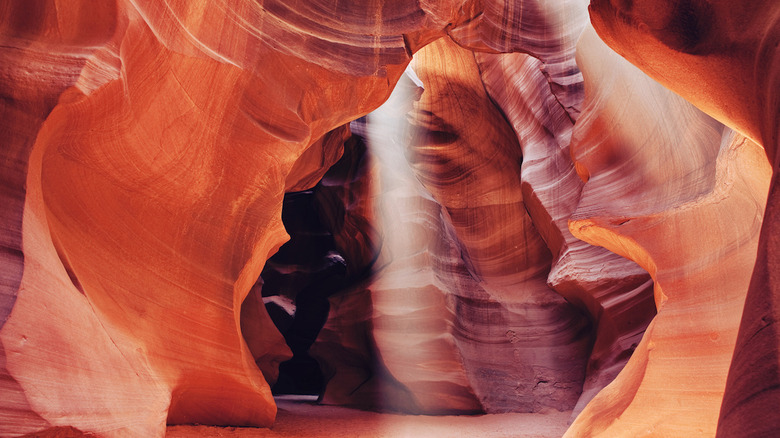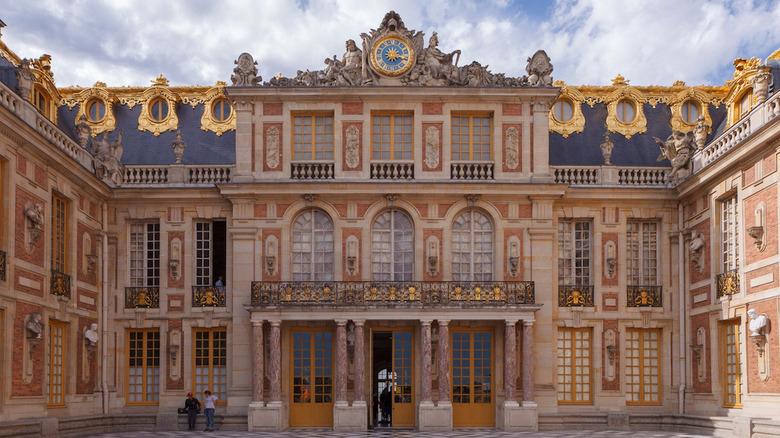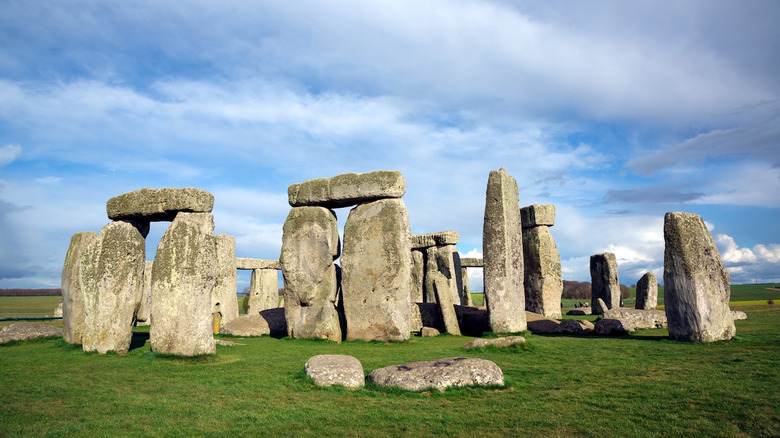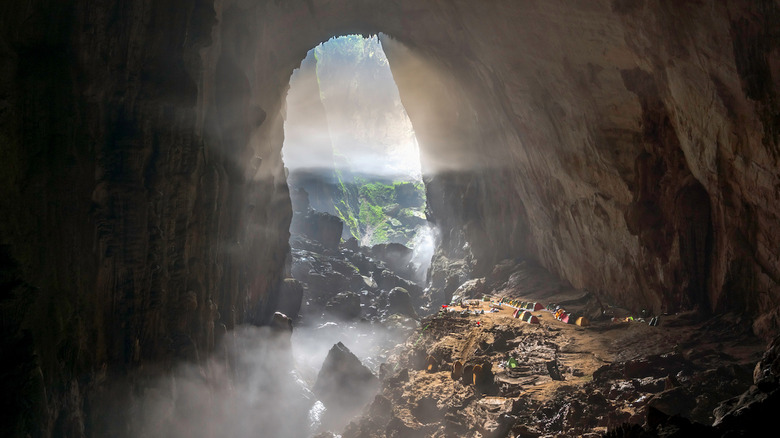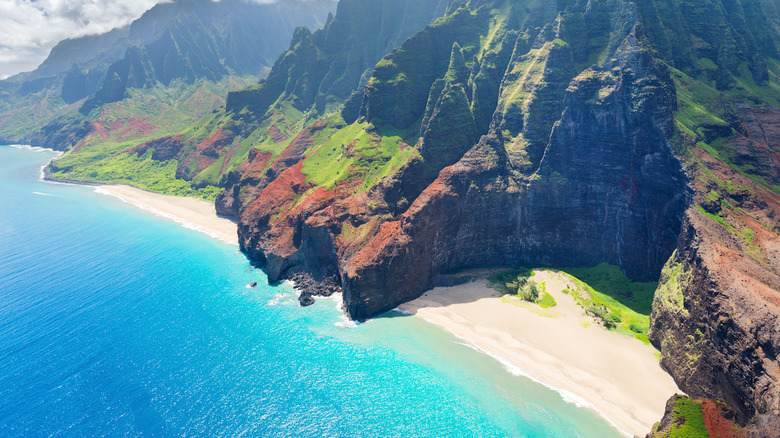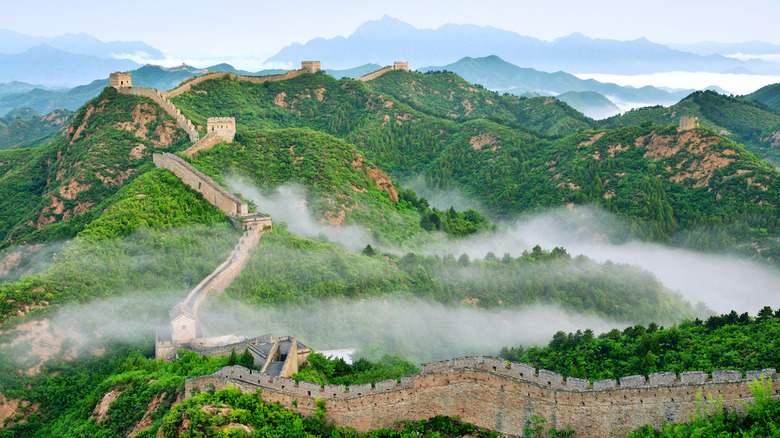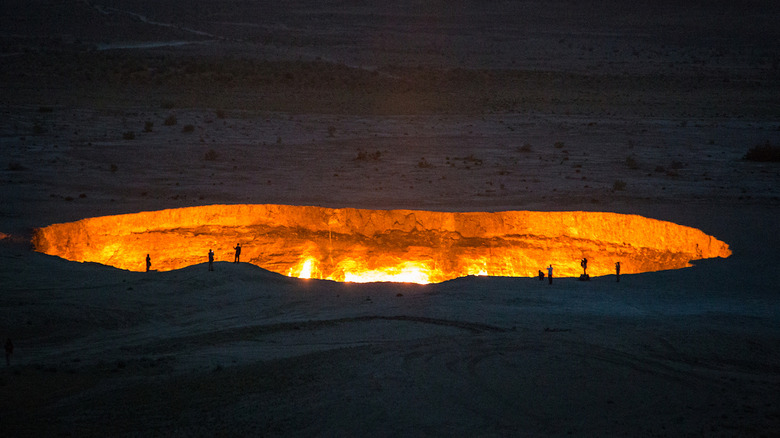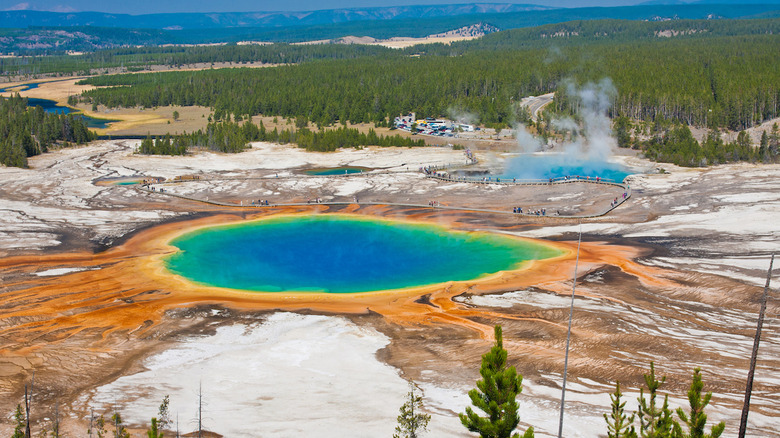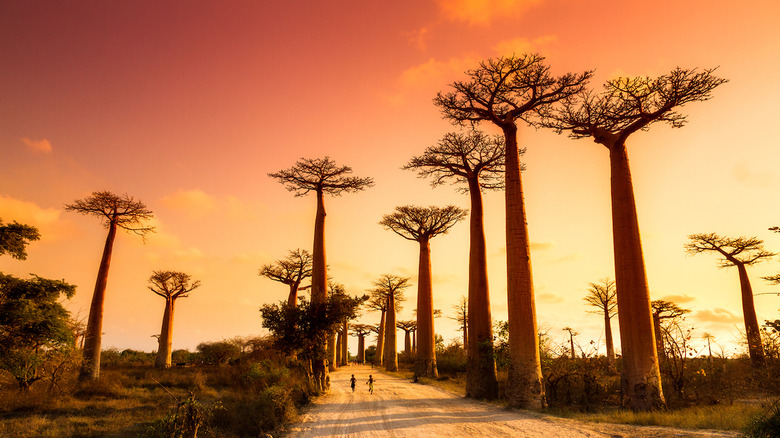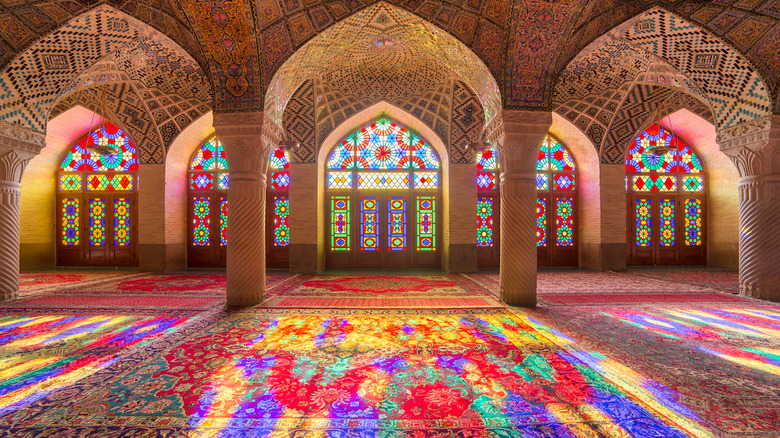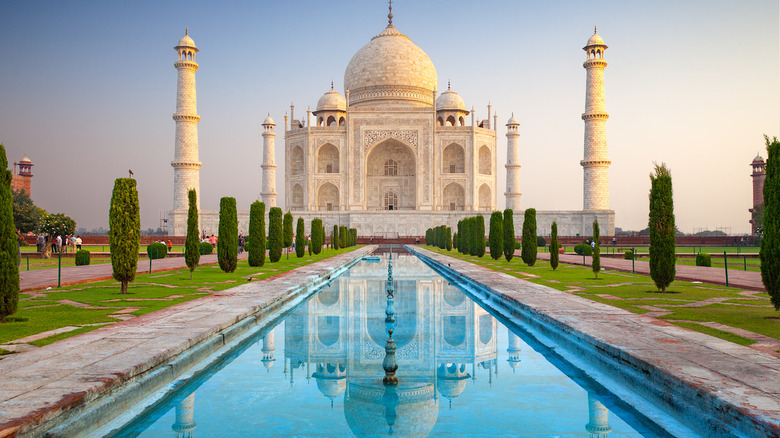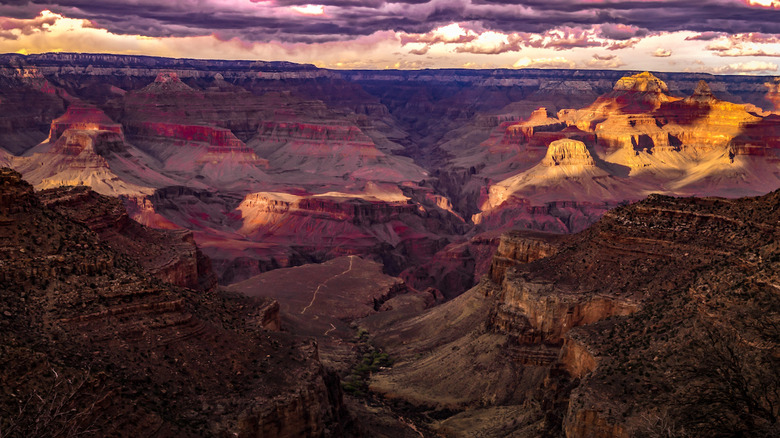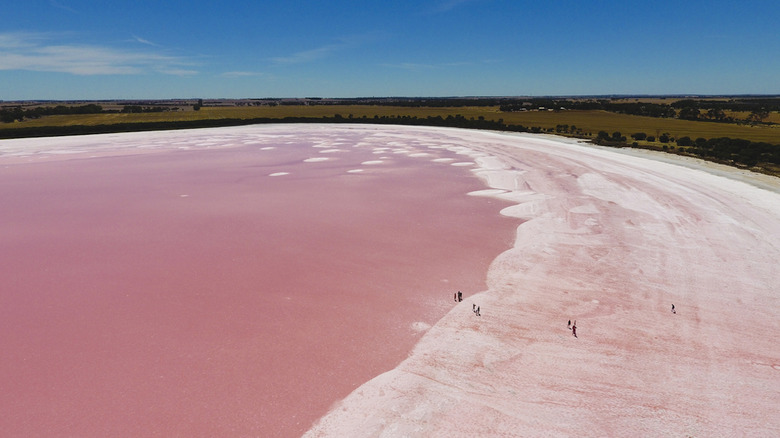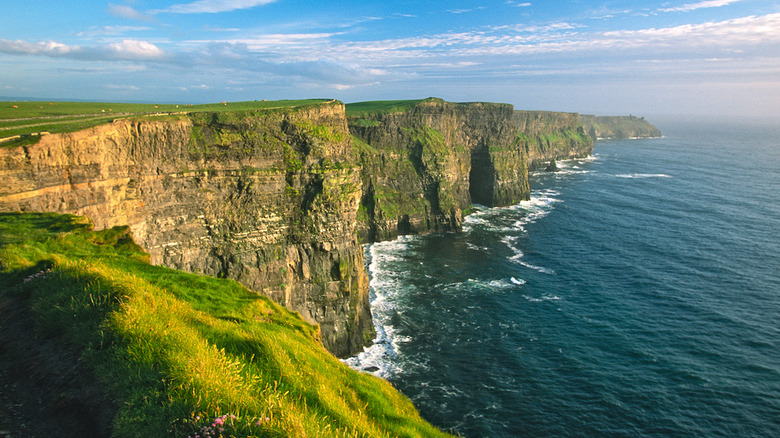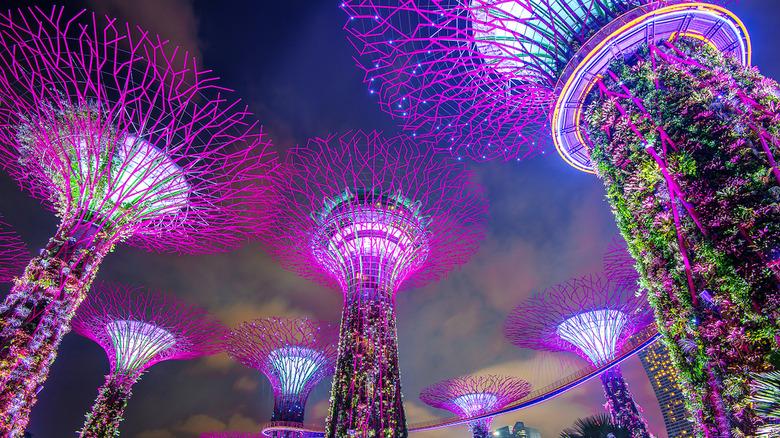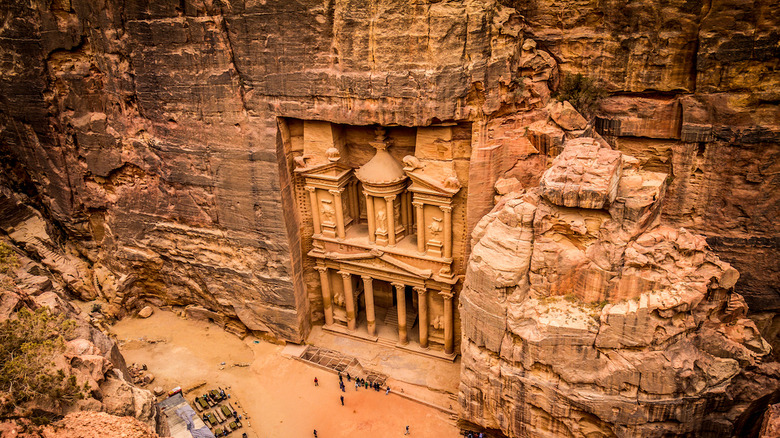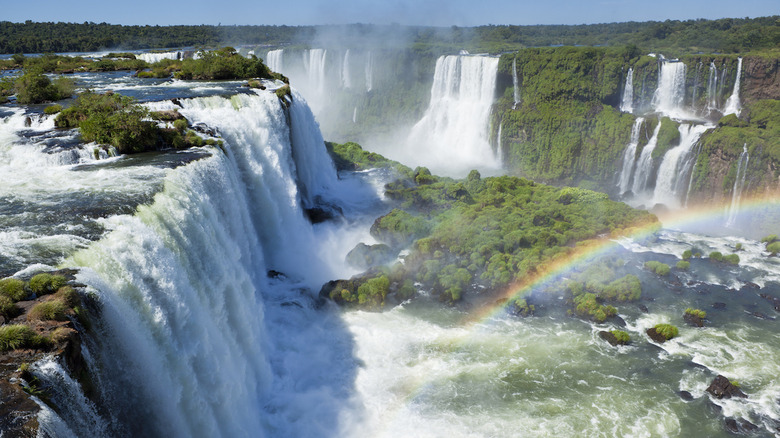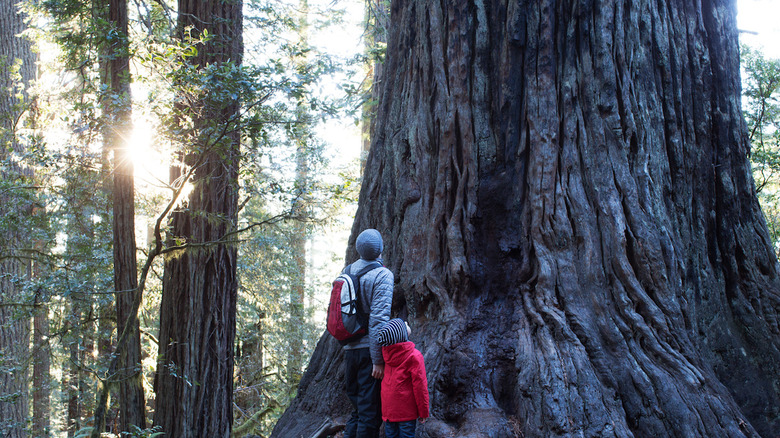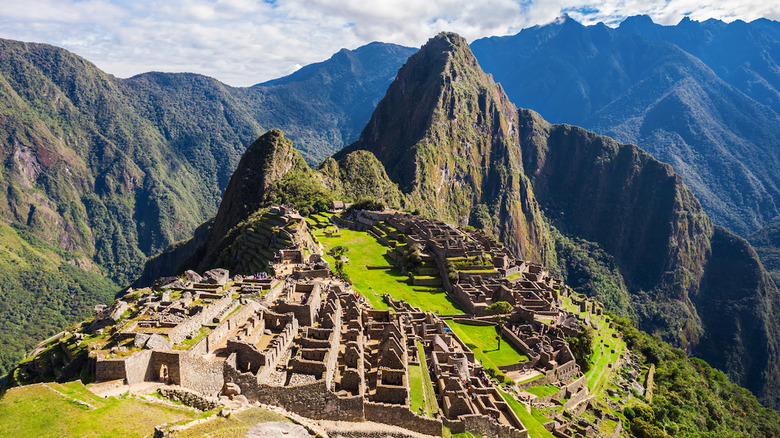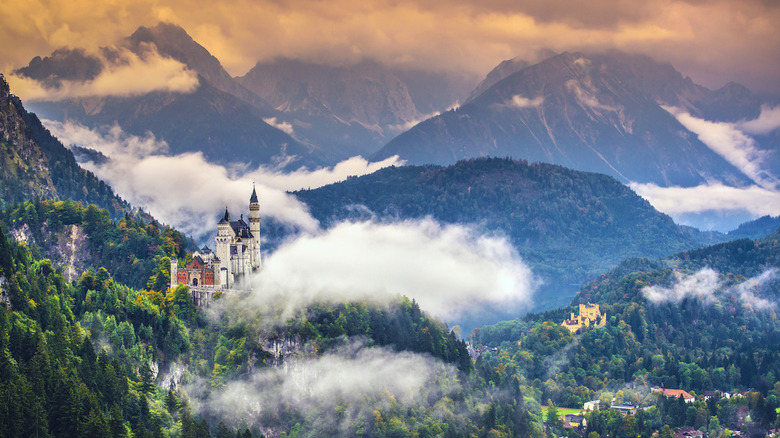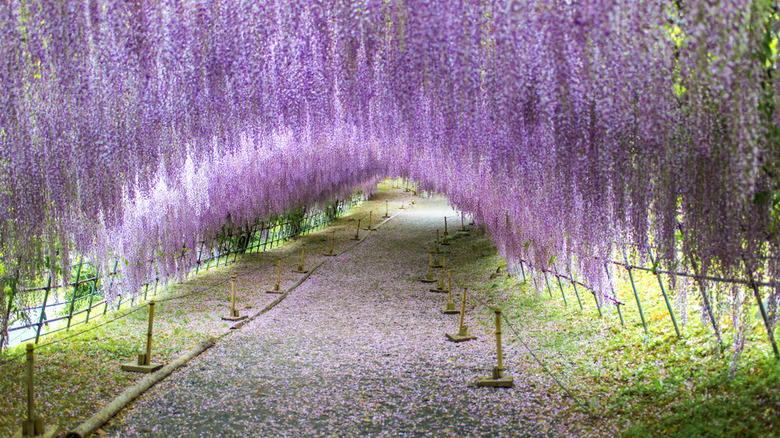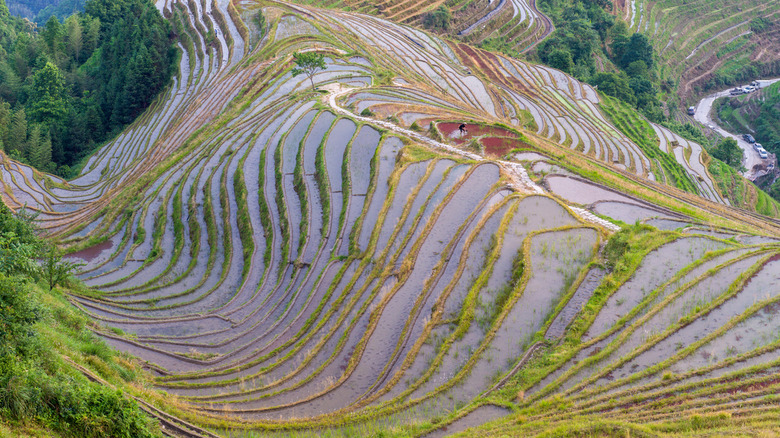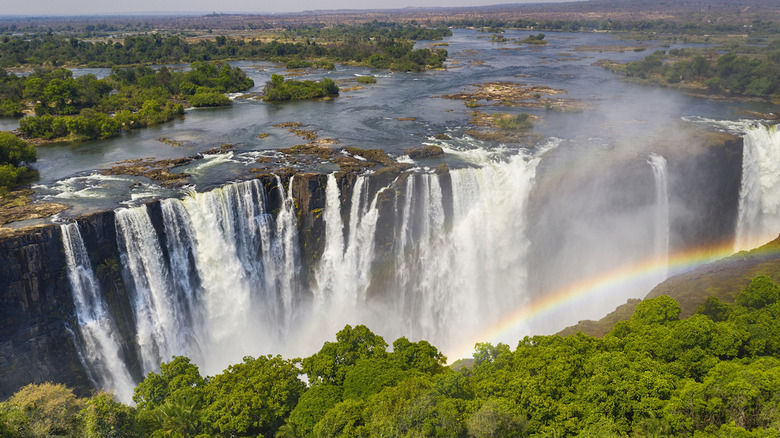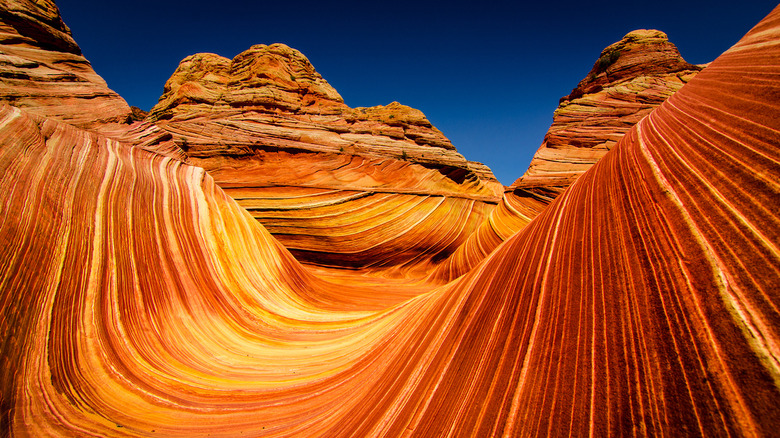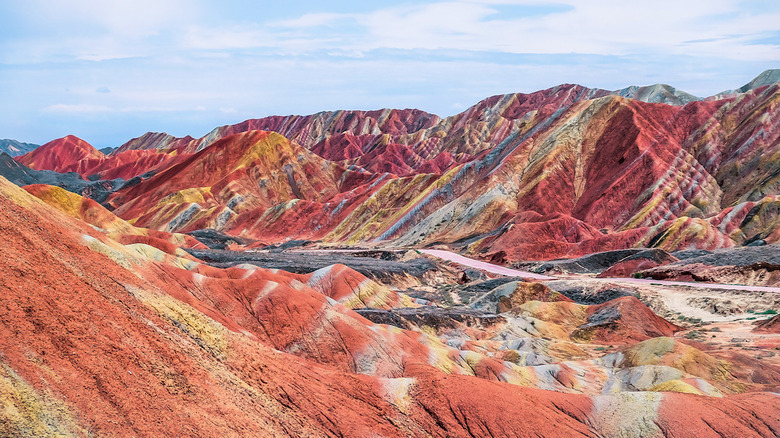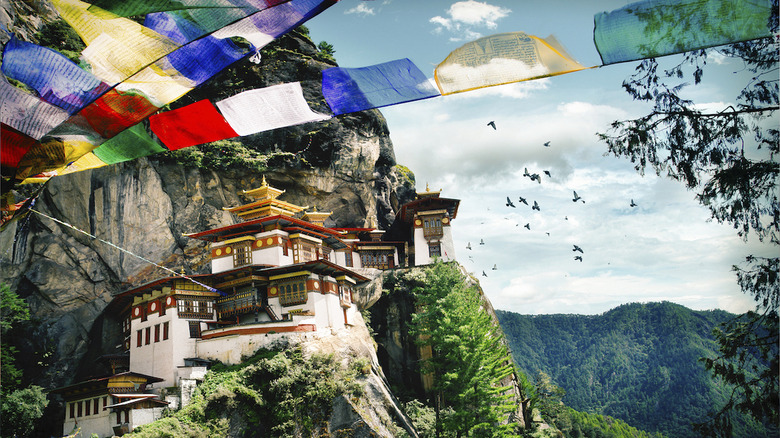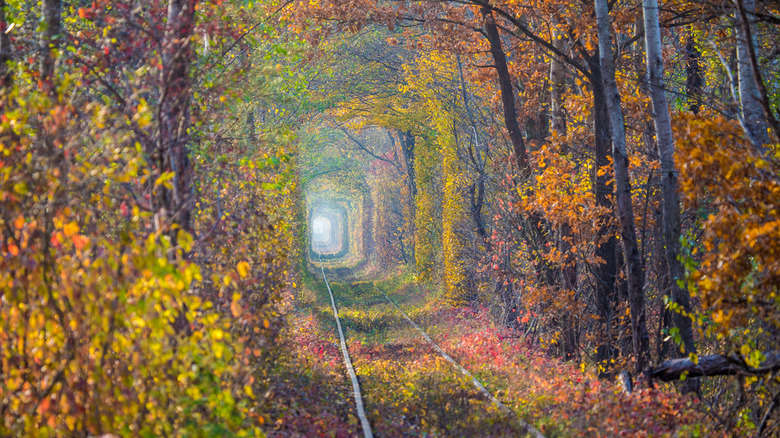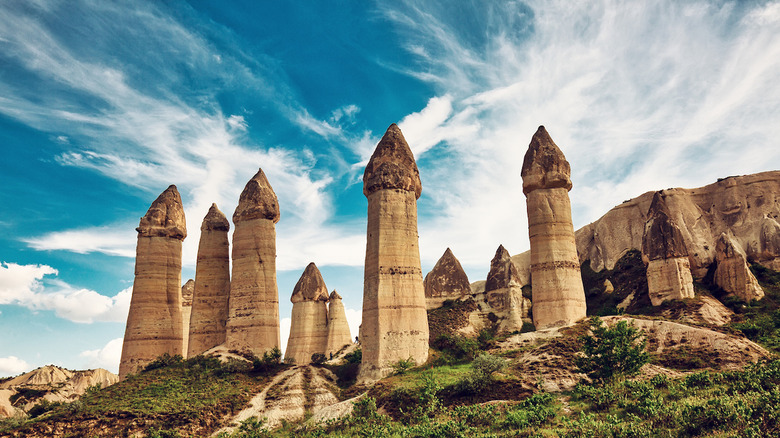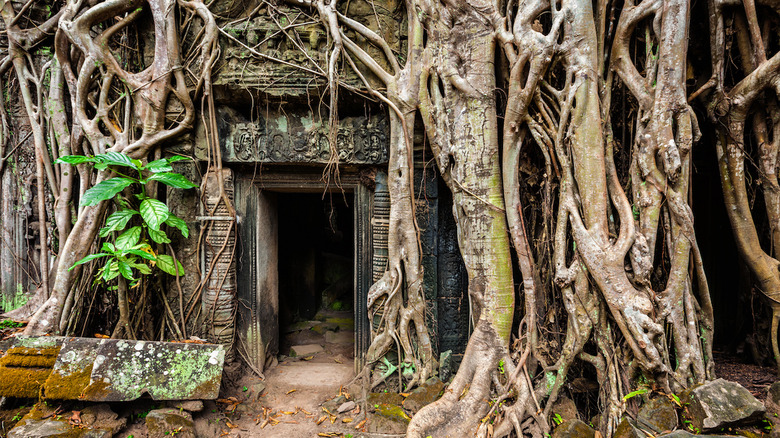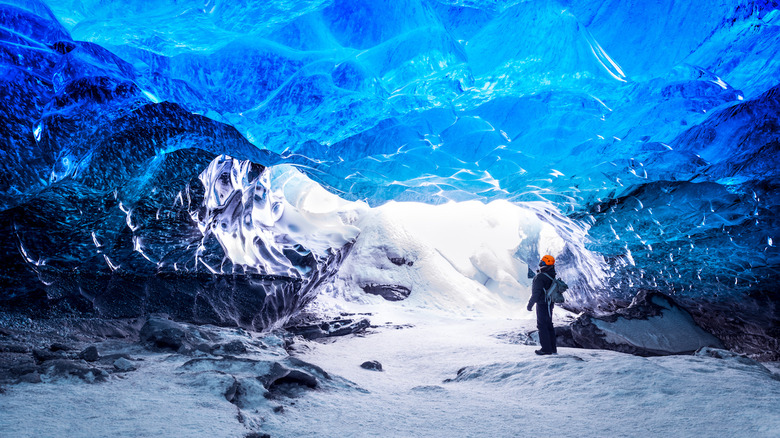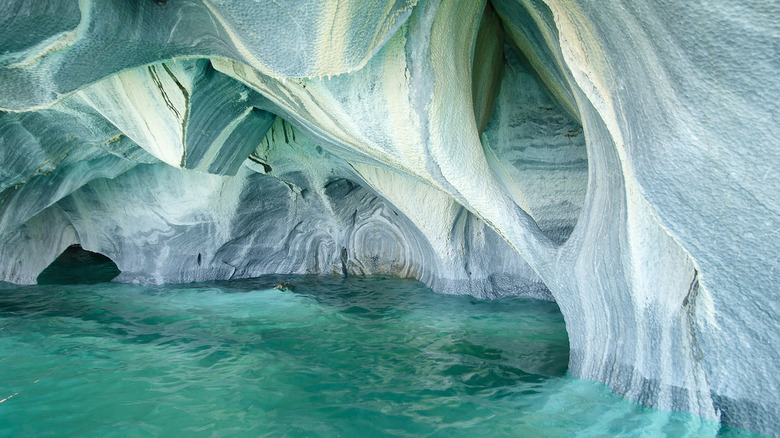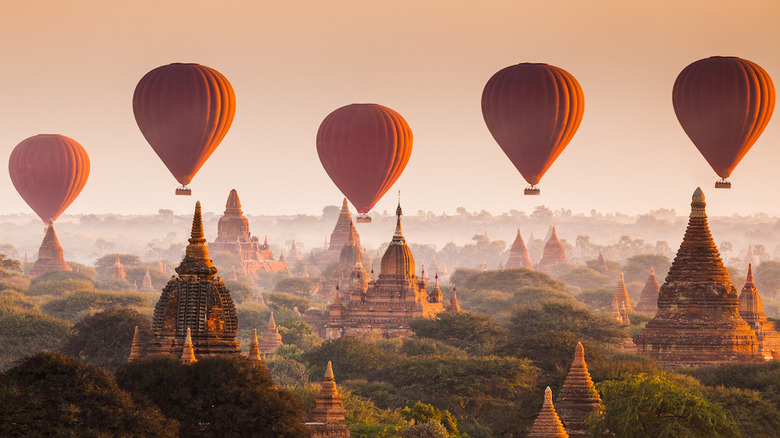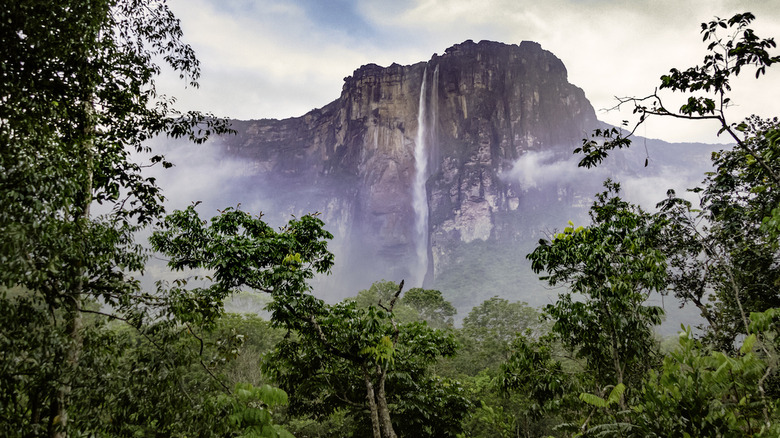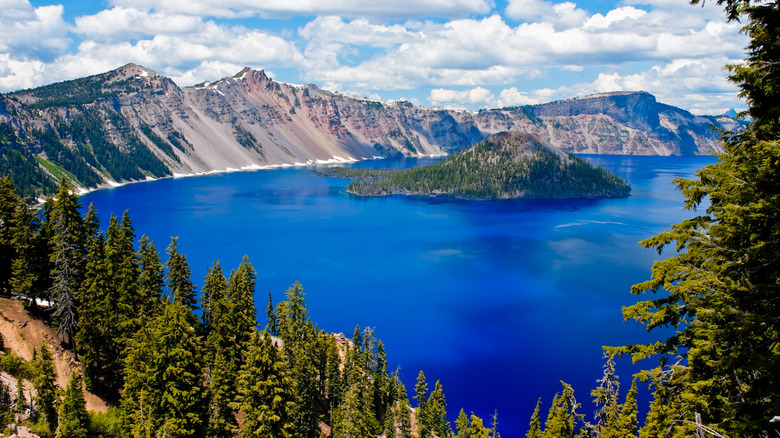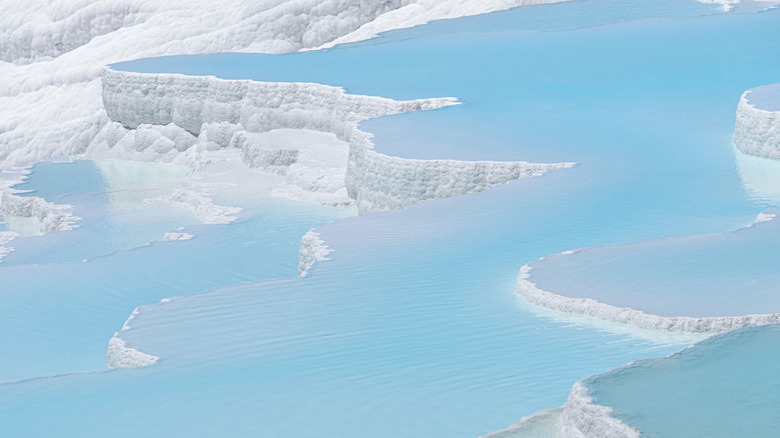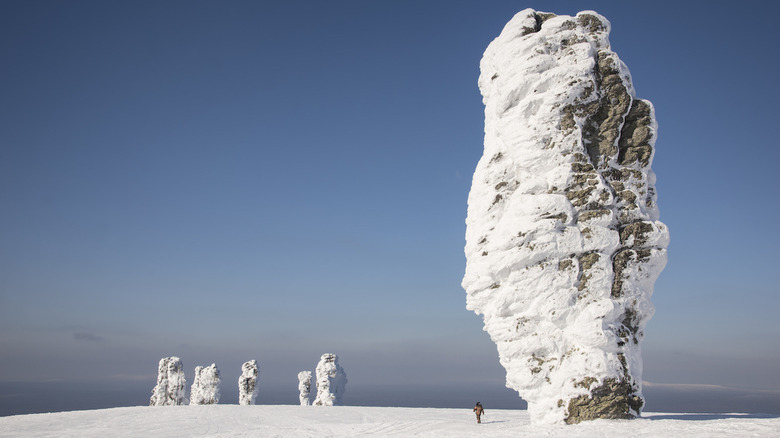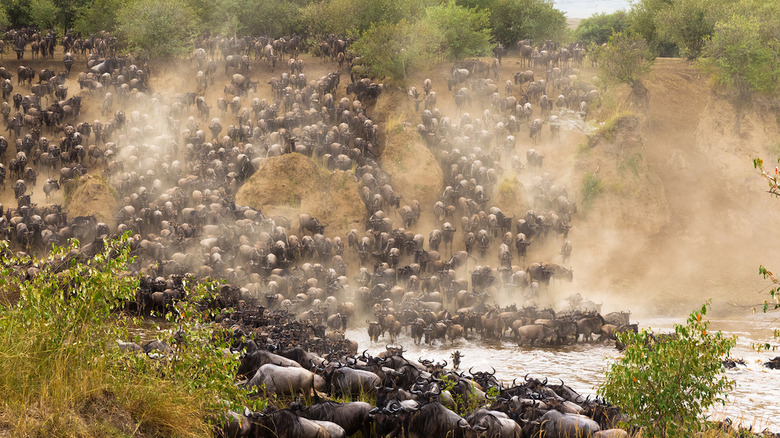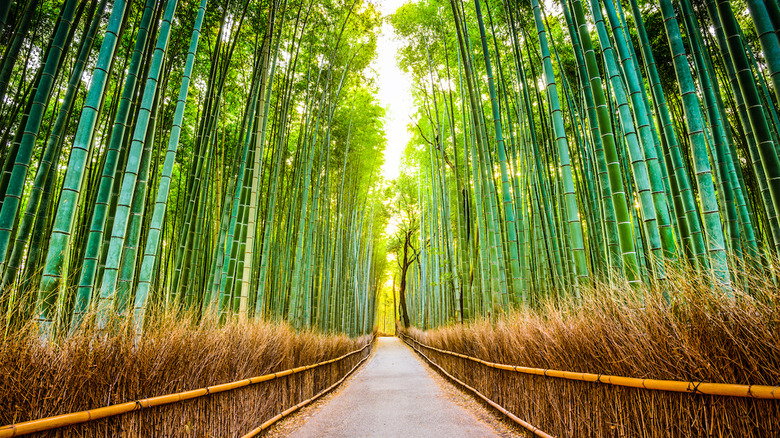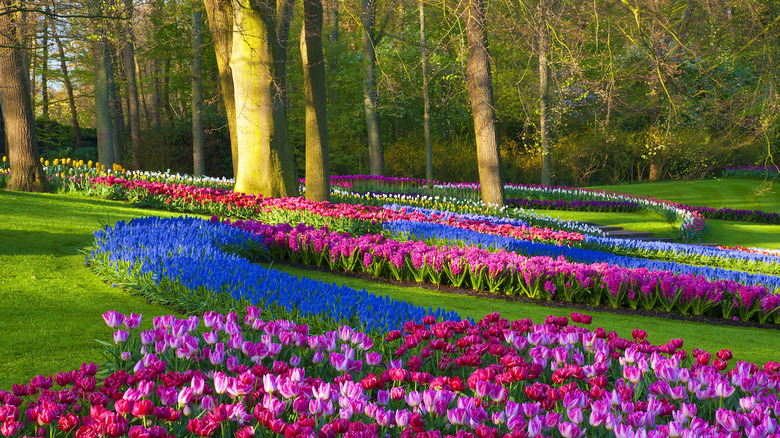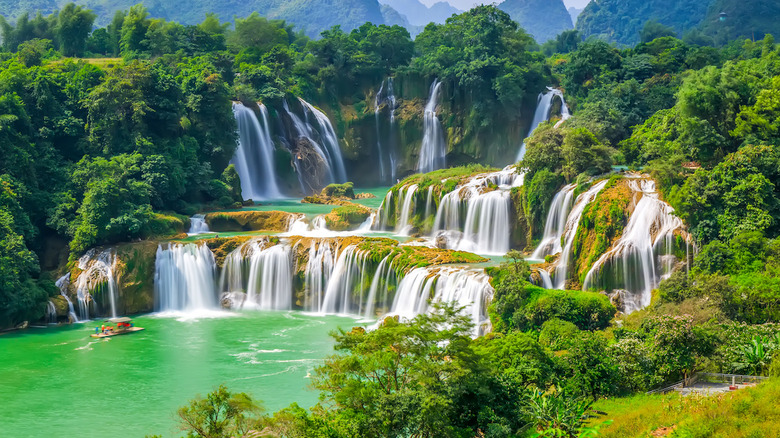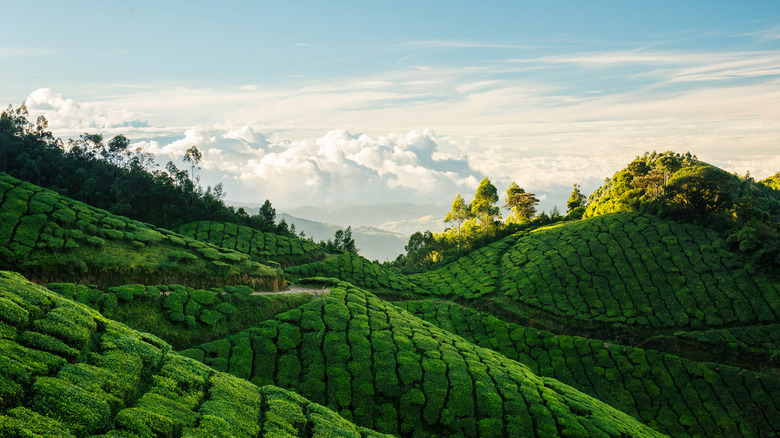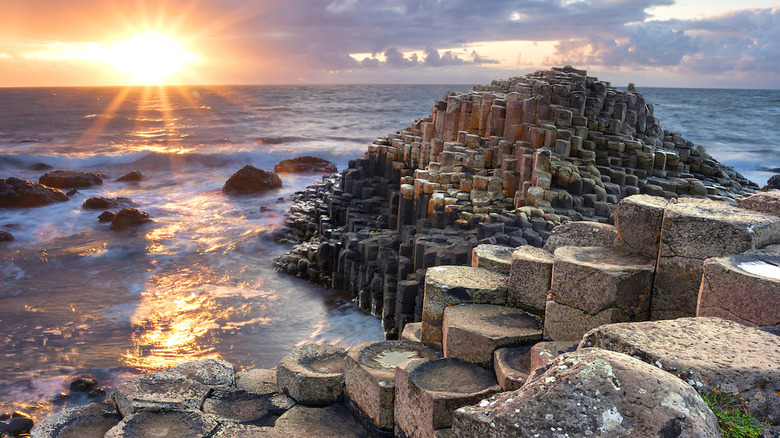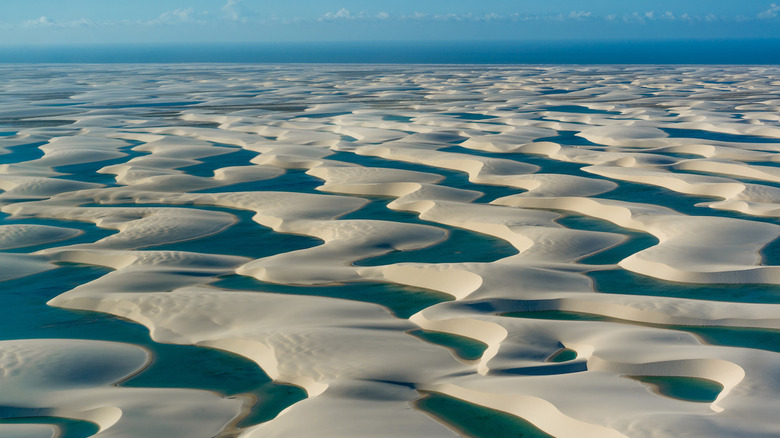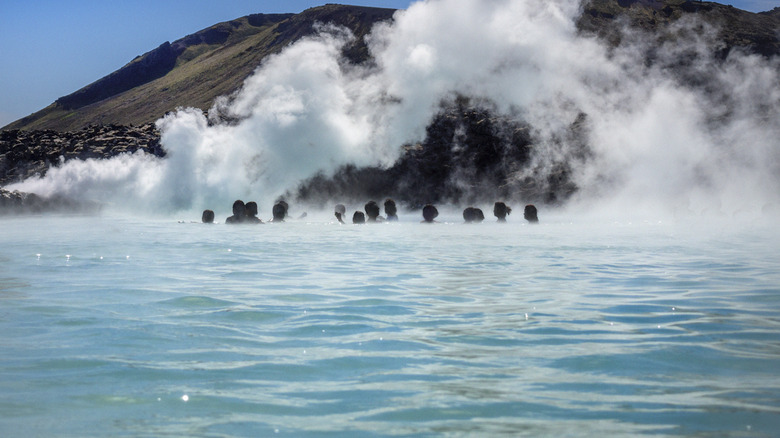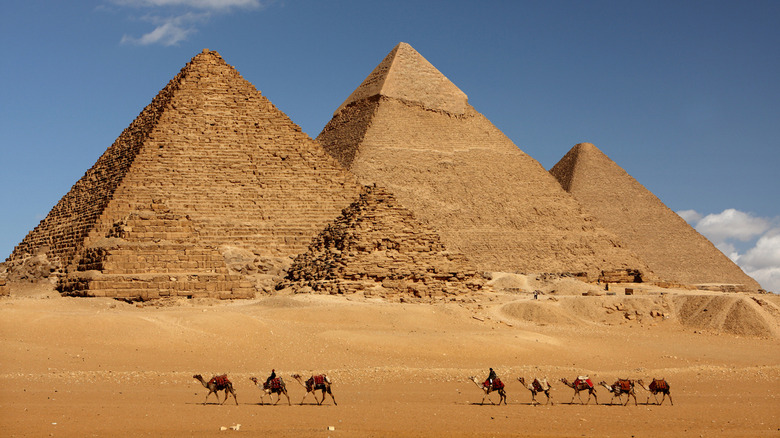50 Of The Most Mesmerizing Places On Earth
The world is full of sights that are so breathtakingly beautiful that they seem otherworldly. From natural wonders to man-made marvels, these fascinating places around the globe demand your attention. Learn the amazing stories of some of the most mesmerizing places on earth.
1. Zhangjiajie National Forest Park (China)
China's Zhangjiajie National Forest Park resembles something straight from your favorite sci-fi movie. Towering stone pillars are the extraordinary signature feature of the park. Visitors can see the pillars from above by taking the world's tallest outdoor elevator or crossing the world's highest and longest glass-bottom bridge.
2. Waitomo Glowworm Caves (New Zealand)
A population of glowworms called Arachnocampa Luminosa illuminates the Waitomo Caves on the North Island of New Zealand. These glowworms, which are unique to New Zealand, are bioluminescent. Thousands of them live along the cave's ceiling, creating the illusion of an overhead sky full of stars.
3. Salar de Uyuni (Bolivia)
Salar de Uyuni in Bolivia is the world's largest salt flat, stretching more than 4,000 square miles. It is devoid of wildlife or vegetation and is known for its extreme flatness and clear skies. This creates a dreamy, mirror-like reflective surface in the wet season and a fascinating pattern of polygonal cracks in the dry season.
4. Galapagos Islands (Ecuador)
The Galapagos Islands are a uniquely preserved habitat with a diverse array of animals that can't be seen anywhere else in the world. The remote volcanic islands, which are part of Ecuador, are located more than 600 miles west of the mainland in the Pacific Ocean. They are part of a national park considered by UNESCO to be a "living museum and showcase of evolution."
5. Antelope Canyon (Arizona)
Located on Navajo land in Arizona, Antelope Canyon is a stunning, picturesque slot canyon with colorful, wavy walls illuminated by streaming beams of light. The canyon has "upper" and "lower" portions, each with different natural lighting and formations created by erosion. The canyon is one of the most beautiful places in America's state and national parks.
6. Palace of Versailles (Versailles, France)
One of the most opulent palaces in the world is the Palace of Versailles outside of Paris. The residence of French royalty for more than 100 years until the French Revolution in 1789, the sprawling palace has 2,300 rooms and attracts millions of visitors a year. Its cost is debated by historians, but low-end estimates put its price tag at about $2 billion. The stunning chateau includes royal apartments, a museum, manicured gardens, an opera, a chapel and the famous hall of mirrors.
7. Stonehenge (England)
Stonehenge is a surreal, world-famous prehistoric stone monument on Salisbury Plain in England. The site's scientific history and mystical mysteries have drawn people in for thousands of years.
8. Son Doong Cave (Vietnam)
Han Son Doong in Vietnam's Phong Nha Ke Bang National Park is the world's largest cave. It wasn't discovered until 1990 and wasn't open to the public until 2013. More people have stood at the summit of Mount Everest than experienced this natural wonder. It is so large it has its own weather system (including clouds) inside, and a 747 airplane could easily fly through it.
9. Napali Coast State Wilderness Park (Kauai, Hawaii)
The 17-mile stretch known as the Napali Coast on the Hawaiian island of Kauai is a national park with breathtaking natural beauty. The 11-mile Kalalau foot trail has unparalleled views of isolated beaches and lush river valleys.
10. Sea of Stars (Vaadhoo Island, Maldives)
The waters around Vaadhoo Island, part of the Maldives in the Indian Ocean, are home to a magical natural show nicknamed the "Sea of Stars." The phenomenon occurs when billions of disturbed microorganisms called dinoflagellates emit a bluish glow, much like aquatic fireflies.
11. Great Wall of China (China)
An architectural marvel and the longest wall in the world, the Great Wall of China is an awe-inspiring sight. The wall is more than 3,000 years old and was originally more than 13,000 miles long, although less than 10% of the original wall remains intact today.
12. The Door to Hell (Turkmenistan)
Known as "The Door to Hell," the Darvaza gas crater in Turkmenistan is actually man-made. While engineers were drilling for oil at the site, a natural gas pocket collapsed, creating a sinkhole. To stop the spread of methane gas, Soviet scientists opted to set it on fire, perhaps unaware of how much fuel it contained. The crater has been burning since 1971, close to 50 years. Explorer George Kourounis, the first person to go inside the terrifyingly surreal crater, described it as a "coliseum of fire." At night, the crater can be seen from miles away.
13. Grand Prismatic Spring (Yellowstone National Park, Wyoming)
Located in one of the most popular national parks in America, Grand Prismatic Spring is the third-largest hot spring in the world. Besides its size, it reflects the entire rainbow spectrum just like a prism. Its blue center spreads into a red ring around the edge. The color shift is due to heat-loving microbes in the water.
14. Avenue of the Baobabs (Madagascar)
A portion of a dirt road in Madagascar is one of the island nation's most famous landmarks. Known as the Avenue of the Baobabs, the stretch of road is lined with giant, ancient baobab trees that are more than 800 years old.
15. Nasir al-Mulk Mosque (Shiraz, Iran)
Nasir al-Mulk in Shiraz, Iran, also known as the Pink Mosque, is considered one of the most beautiful places of worship in the world because of its kaleidoscopic rainbow stained-glass windows, intricate geometric tiles and more.
16. Taj Mahal (Agra, India)
The Taj Mahal is a world-famous landmark. The embellished white marble building is a tomb that emperor Shah Jahan commissioned for his wife in 1632. The mausoleum complex is considered a masterpiece of Mughal architecture. It's also an incredible place to witness a sunrise.
17. Grand Canyon (Arizona)
The Grand Canyon is considered one of the seven wonders of the natural world and is one of the largest canyons in the world, offering unrivaled views. Intrepid explorers can also traverse the canyon itself by hiking, whitewater rafting or tackling the perilous Bright Angel Trail by mule.
18. Lake Hillier (Australia)
One of the most interesting bodies of water in the world is Western Australia's Lake Hillier, which is strangely pink in color. The remote lake, which is right next to the bright blue Pacific Ocean, is colored by the microorganisms that live in it, and despite the striking rainbow color, it's safe for humans to swim in.
19. The Cliffs of Moher (Ireland)
One of Ireland's favored tourist sites is a stretch of cliffs along the coast in County Clare. The Cliffs of Moher are famous for their staggering height; ancient, stratified rock face; and jaw-dropping views. They're also a famous filming location, appearing in "The Princess Bride" as the Cliffs of Insanity as well as in "Harry Potter and the Half-Blood Prince."
20. Gardens by the Bay (Singapore)
Singapore's Gardens by the Bay has three areas and includes the largest glass greenhouse in the world and an almost 100-foot-tall indoor man-made waterfall. The Supertree Grove is made of solar-powered mechanical giants, with the largest standing more than 16 stories tall. The gardens have skywalks between some of the trees, giving visitors a dizzying view of the greenery below. The grove also hosts a light show at night.
21. Petra (Jordan)
Known as the "Rose City," Petra is an amazing ancient city carved from red sandstone. It is comprised of a series of temples and tombs created by a nomadic people. The city was abandoned in the eighth century but its ruins were rediscovered in 1812.
22. Iguazu Falls (Argentina and Brazil)
Iguazu Falls is a 1.7-mile-long stretch of 275 waterfalls along the border between Argentina and Brazil. The system's tallest waterfall falls about 260 feet, 100 feet higher than Niagara Falls. The falls are also surrounded by a verdant rainforest teeming with wildlife.
23. Redwood National and State Parks (California)
California's Redwood National and State Parks cover more than 130,000 acres and are home to the tallest trees on Earth. The parks protect the state's remaining original old-growth redwoods, the tallest of which stands at a staggering 379 feet tall.
24. Machu Picchu (Peru)
Machu Picchu was abandoned after the Spanish conquest of the Inca Empire, but the complex has fascinated the world since its rediscovery in 1911. This impressive man-made creation was originally constructed in the 15th century.
25. Neuschwanstein Castle (Germany)
One of the most striking European castles is Germany's Neuschwanstein Castle, which was built as a retreat for King Ludwig II of Bavaria. The cliffside castle's white limestone façade and deep blue turrets were the direct inspiration for Disneyland's iconic "Sleeping Beauty" castle. This design is also part of Disney's title card and logo.
26. Kawachi Fuji Gardens (Kitakyushu, Japan)
Japan's Kawachi Fujien Wisteria Gardens are famous for their breathtaking blooms. Each spring, the wisteria tunnels are draped in purple, blue and white blossoms. The gardens are also a great place to view beautiful foliage during the autumn.
27. Dragon's Backbone Rice Terraces (Longsheng County, China)
The Dragon's Backbone is composed of stacked ribbons of rice paddies that look like the ridges of the mythical creature. Also called the Longsheng or Longji Rice Terraces, the captivating layers change colors with the seasons.
28. Victoria Falls (Zambia and Zimbabwe)
Forming part of the border between Zambia and Zimbabwe, Victoria Falls creates the world's largest falls as well as a mystical mist that can be seen more than 31 miles away. During the dry season, when the flow is at its weakest, brave swimmers can wade in the Devil's Pool, which has an underwater lip that allows them to approach the edge of the falls.
29. The Wave (Arizona)
The Wave is a sandstone formation in the Coyote Buttes of Arizona near the Utah border. Eroded by rainwater and wind, the rocks reveal history back to the Jurassic age. To protect the more fragile parts of the structure, hikers need a permit to access The Wave. Only 20 are given out each day, and thousands of people apply every year.
30. The Rainbow Mountains (China)
Located in the Gansu province of China in the Zhangye Danxia Landform Geological Park, this technicolor mountain range was formed before the Himalayas. Mineral deposits, tectonic shifts and erosion have created sandstone layers of different shades of yellow, blue, green, red and more.
31. Paro Taktsang (Bhutan)
Taktsang Lhakhang, also known as "The Tiger's Nest," is a cliffside Buddhist temple complex that hangs almost 3,000 feet above the valley below. Undertaking the strenuous, high-altitude climb to the Tiger's Nest rewards visitors with an unreal view and tours of the various shrines and a sacred stone cave.
32. Tunnel of Love (Klevan, Ukraine)
The Tunnel of Love is a roughly 3-mile section of railway in Ukraine that is surrounded by an enchanting natural tunnel perfect for strolling lovebirds. The lush walkway is dreamy in all four seasons and looks like it's straight from a storybook. Each day, a train still travels along the scenic railway, which helps maintain the route's shape. Local lore goes that couples who walk through the tunnel will have their wish come true.
33. Cappadocia Region (Turkey)
The Turkish region of Cappadocia is famous for its tall, conical rock formations nicknamed "fairy chimneys." One way to take in this fantastical geological phenomenon is a sunrise hot air balloon ride.
34. Ta Prohm (Siem Reap, Cambodia)
Abandoned for hundreds of years after the fall of the Khmer Empire, the 12th-century temple ruins of Ta Prohm have become intertwined with the surrounding Cambodian jungle in Siem Reap. Ta Prohm is part of the Angkor Archaeological Park that also contains the famous Angkor Wat temple.
35. Vatnajokull Glacier and National Park (Iceland)
Vatnajokull is the largest glacier in Europe and covers 8% of Iceland's landmass. Its landscape is serene and otherworldly, and the glacier can also be explored via a series of ice caves that form during the winter. Flowing meltwater creates tunnels through which hikers can see the breathtaking crystal blue ice illuminated by the sunlight outside.
36. Marble Caves (Patagonia, Chile)
Chile's Capillas de Mármol, or "Marble Caves," are a set of caves in the Patagonia region carved from the General Carrera Lake for more than 6,000 years. Visitors can take a boat ride to experience the sloping, sweeping beauty of the three main formations: the Cathedral, the Chapel, and the Cave.
37. Bagan (Myanmar)
Myanmar, formerly known as Burma, has been open to foreign tourists since 2012 after five decades of shutting them out. The country has thousands of temples and archaeological sites, including the ancient city of Bagan, which is home to thousands of monuments rising above a 26-square-mile plain.
38. Angel Falls (Venezuela)
Angel Falls in Venezuela is the highest waterfall on Earth, standing a breathtaking 3,212 feet tall. The falls crash over the edge of a mountain and are surrounded by dense jungle below.
39. Crater Lake National Park (Oregon)
An underrated U.S. national park, Crater Lake National Park in Oregon has the deepest lake in the country. Its depth, along with the fact that it's filled almost entirely by rain and snow, makes it one of the clearest, bluest lakes anywhere in the world.
40. Pamukkale Water Terraces (Denizli, Turkey)
The glistening mineral pools of Pamukkale were created by water from thermal springs flowing down a hillside and forming white travertine terraces filled with cascading blue pools. The terraces are surrounded by the ruins of the ancient spa city of Hierapolis, making visitors feel like they've traveled back in time.
41. Manpupuner Rock Formations (Russia)
Also known as the Seven Giants or Seven Strong Men, the Manpupuner rock formations in the mountains of northwest Russia are considered one of the country's seven wonders. Some of these mysterious natural towers stand as high as 10- to 15-story buildings. These gigantic pillars have inspired many legends but their true origin is that they were once part of a mountain that was eroded by time and harsh weather, leaving these seven stones behind.
42. Serengeti National Park (Tanzania)
One of the most amazing places in the world to experience wildlife, Serengeti National Park is famous as a viewing site for the extraordinary annual Great Migration of herds of wildebeest and zebras. On top of that, Serengeti hosts the largest population of lions in the world and is home to all of the "Big Five" African animals — lions, elephants, rhinoceros, leopards and Cape buffalo.
43. Arashiyama Bamboo Grove (Kyoto, Japan)
The towering bamboo forest in the Arashiyama district is one of the top sights in Kyoto, Japan. With its gentle creaking and rustling, this tranquil grove is recognized by the government as one of the country's 100 top soundscapes.
44. Keukenhof Park (Lisse, Holland)
Some of the most stunning spring blooms in the world can be seen at Keukenhof. Nicknamed the "Garden of Europe," Keukenhof's more than 7 million tulip bulbs of 800 different varieties emerge every year and sprawl across 79 acres, creating a colorful sea of flowers.
45. Ban Gioc-Detian Falls (China and Vietnam)
Ban Gioc-Detian Falls is the collective name of the two massive transnational waterfalls spanning the border between China and Vietnam. Making up the fourth-largest waterfall in the world, the massive sheets of falling water traverse three rocky tiers, splitting into smaller streams before joining up again.
46. Kolukkumalai Tea Estate (Munnar, India)
The remote Kolukkumalai Tea Estate in Munnar, India, is the world's highest-elevation tea plantation. The road to reach it winds through lush, gorgeous land completely covered in tea plants with scenic views at the summit of the mist-covered mountains.
47. Giant's Causeway (Antrim, Northern Ireland)
Giant's Causeway is a natural wonder on the northern coast of Northern Ireland. It is made up of more than 40,000 interlocking basalt columns, which were created by volcanic activity. The name is derived from a legend about two giants, one from Ireland and one from Scotland, constructing a road so they could meet after one challenged the other to a fight.
48. Lencois Maranhenses National Park (Brazil)
During the rainy season, the valleys between the white-sand dunes of Lencois Maranhenses National Park turn into thousands of blue lagoons filled with rainwater, creating a stunning sight. Some of the lagoons span over 300 feet long and stand 10 feet deep.
49. The Blue Lagoon (Iceland)
Located in an Icelandic lava field, the Blue Lagoon is a man-made geothermal spa filled with baby-blue water that stays a toasty 99-102 degrees F year-round and completely renews itself every 48 hours. The spa's mineral-rich water is one of Iceland's most popular attractions.
50. Great Pyramid of Giza (Egypt)
The only one of the seven wonders of the ancient world that's still intact is Egypt's Great Pyramid of Giza. This feat of engineering is composed of more than 2 million blocks of stone, some of which are so large and heavy that scholars still debate how exactly the ancient Egyptians were able to build the structure. To this day, the Great Pyramid of Giza is one of the most mysterious places on the planet.
